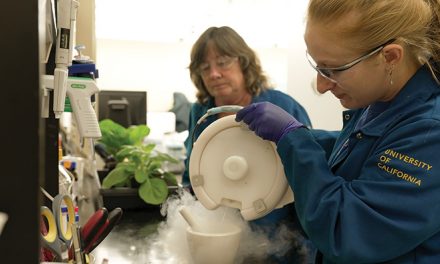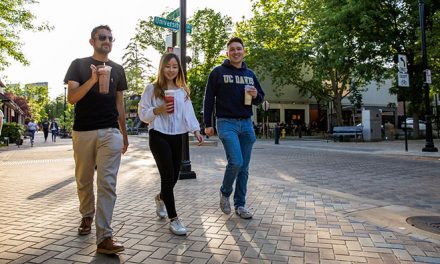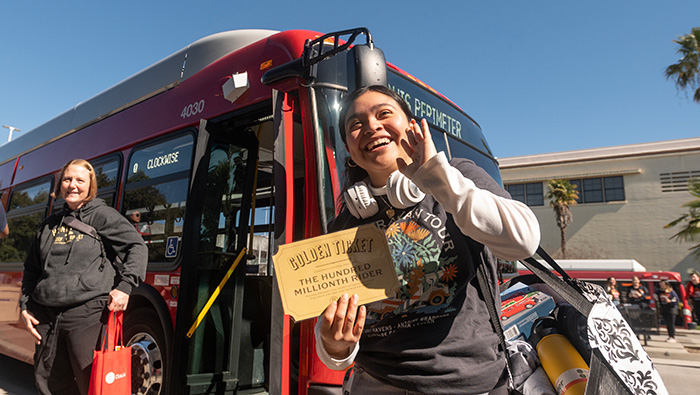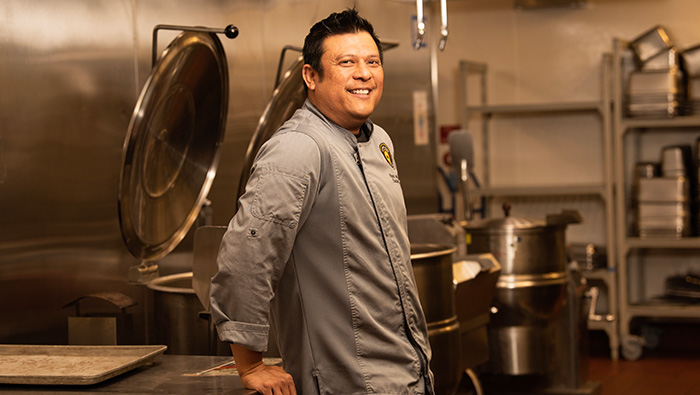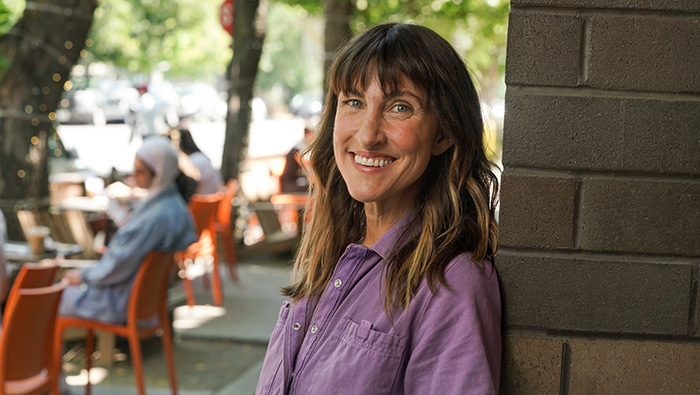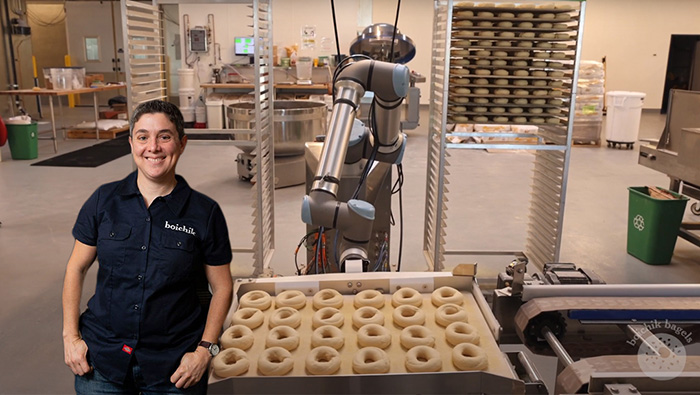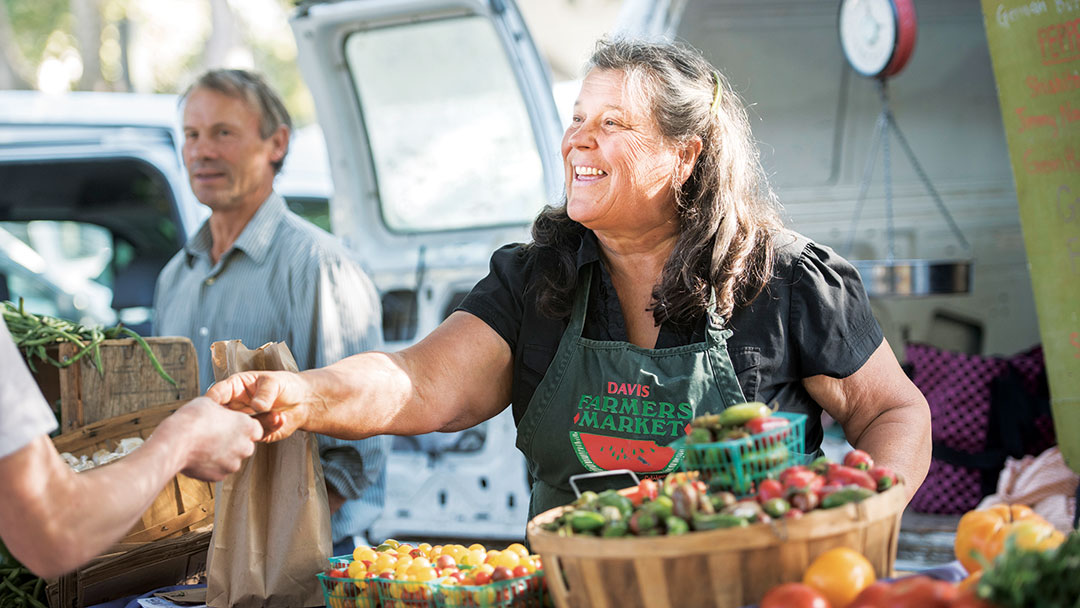
Annie and Jeff Main still bring their Good Humus produce to the Davis Farmers Market
Photo: Karin Higgins/UC Davis
Market Value
What started as an experiment by a counterculture group of students and alumni has not only lasted four decades — it’s been embraced by the whole community.
The Davis Farmers Market, held every Wednesday evening and Saturday morning in Central Park, attracts about 60 vendors and hundreds of customers each time — a far cry from the humble beginnings when farmers outnumbered customers.
At the market’s inception in 1976, its founders shared a sense of frustration with multiple issues: limited food options, a farming industry they saw as overrun with pesticide use, and state regulations that kept small farmers from selling directly to consumers. So they decided to do something about it.
A half-dozen students and alumni created the market, working largely from a shared home where they canned produce, made yogurt and ground grains to bake into bread. Nearly all of the founders went on to become farmers, and many still sell at the market today.
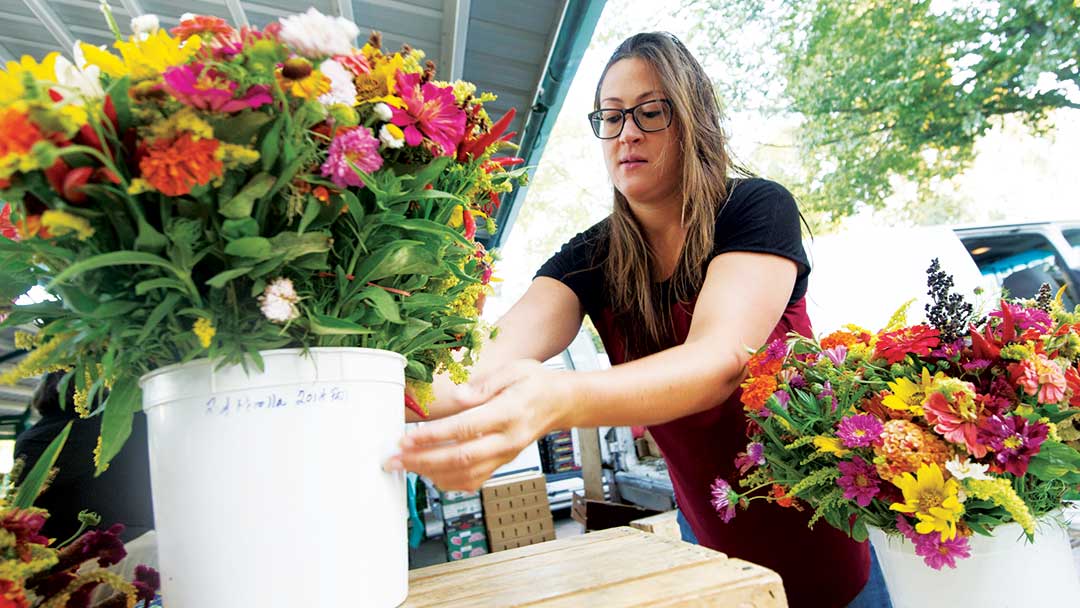
Claire Main helps out in her parents’ booth. (Karin Higgins/UC Davis)
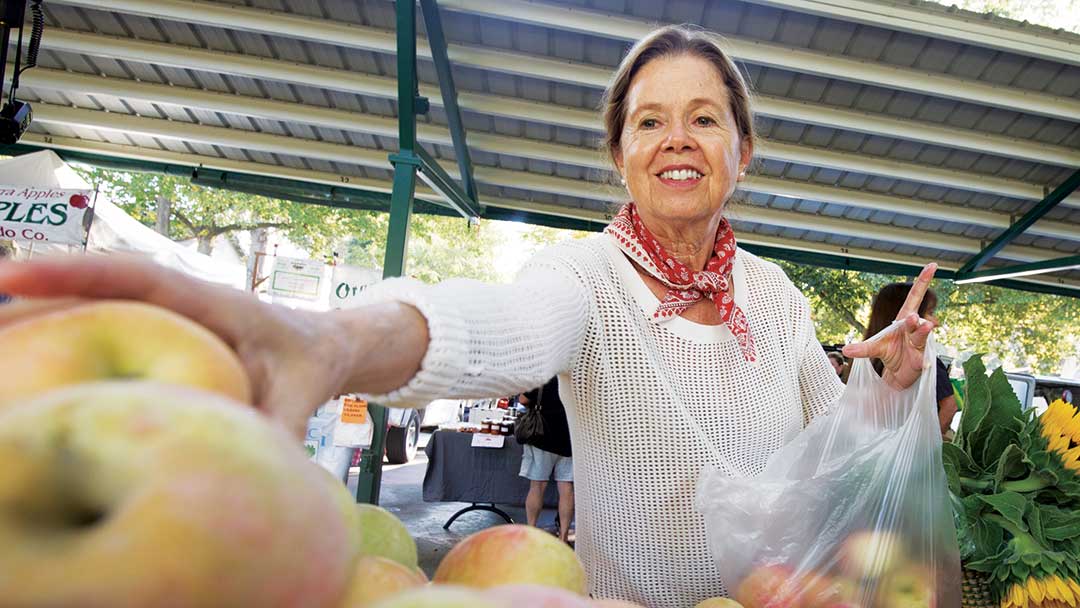
Ann Evans continues to shop at the market she helped found. (Karin Higgins/UC Davis)
“You’re so empowered by this vision you have that there’s literally nothing that will get in your way and no task seems too large,” said co-founder Ann Evans ’75, who chronicles the history in The Davis Farmers Market Cookbook (Elderflower Press, 2016), now in its second edition.
Many of the founders were spurred into action by Isao Fujimoto, who at the time was a community development lecturer and said his unpopular ideas encouraging activism led him to avoid his office and work mostly from his back porch. Fujimoto said he would take students to San Francisco and connect them with activists trying to help the homeless, and helped coordinate UC Davis-owned buses to get the children of migrant farmworkers to school in Yuba City. He said he was encouraged by the spirit of the farmers market founders.
“The kind of energy these people had was very positive and made it worthwhile to stick around,” said Fujimoto, who retired in 1994 and still teaches. Fujimoto rented out a spare room in his house to students like Henry Esbenshade, M.A. ’77, another market co-founder.
Thaddeus Barsotti, son of market co-founders Martin Barnes, M.S. ’75, and Kathleen Barsotti, M.S. ’74, said Fujimoto inspired his parents to try to change the agricultural industry from the inside by using organic farming methods and connecting small farms directly with customers — a challenge when state regulations stipulated that produce could only be sold in large quantities to retailers. In 1977, California allowed farmers to bypass those rules at farmers markets.
The farm Martin Barnes and Kathleen Barsotti founded, Capay Organic, continues to do that with Thaddeus Barsotti and his brother and sister at the helm. Like some other farmers market vendors, Capay Organic also sells through a community-supported agriculture program, delivering produce directly to customers.
And while the farmers market’s focus has always been the produce (even the art sold there must be agriculturally themed), its impact has grown. Randii MacNear, who has managed the market for 37 years, said it has become a positive space to gather, away from the stress of everyday life.
“We focus on food and farmers, and families, and putting your cellphone down,” MacNear said. “That’s how you change the world — take people back to what they’re supposed to be as human beings.”
Customers aren’t the only ones who feel the effect.
Market co-founders Jeff and Annie Main, both class of ’76, still run their farm, Good Humus, and sell at the market. Annie Main said filling their van with crates of produce — and their children — at 5 a.m. on a Saturday to make it to the market has sometimes been grueling but always pays off once she arrives.
“I open that door and can’t be grumpy — you see everybody and shift into the market [mindset],” she said. Her eyes welled with tears when she talked about how far the market has come, and how the community has embraced it. “People were ready for it.”
Claire Main, like the children of many farmers, grew up at the market. Now 26, she laughed as she recalled hiding under the Good Humus table and grabbing at customers’ legs.
The elder Mains estimated they’ve sold at the Davis Farmers Market 2,000 times, and said they hope to make it to many more.
Over the years, the market has expanded wildly and gained powerful support: The city of Davis used public funds to build a permanent pavilion over the market in 1994. These days, sellers spill down the sidewalk well beyond the covering. Market staff established a smaller version on the UC Davis campus in 2006. MacNear said she has to turn away many would-be vendors, but tries to stick with the original spirit of the market.
“If somebody is a young, emerging farmer in Yolo County, we try really hard to get them in.”


